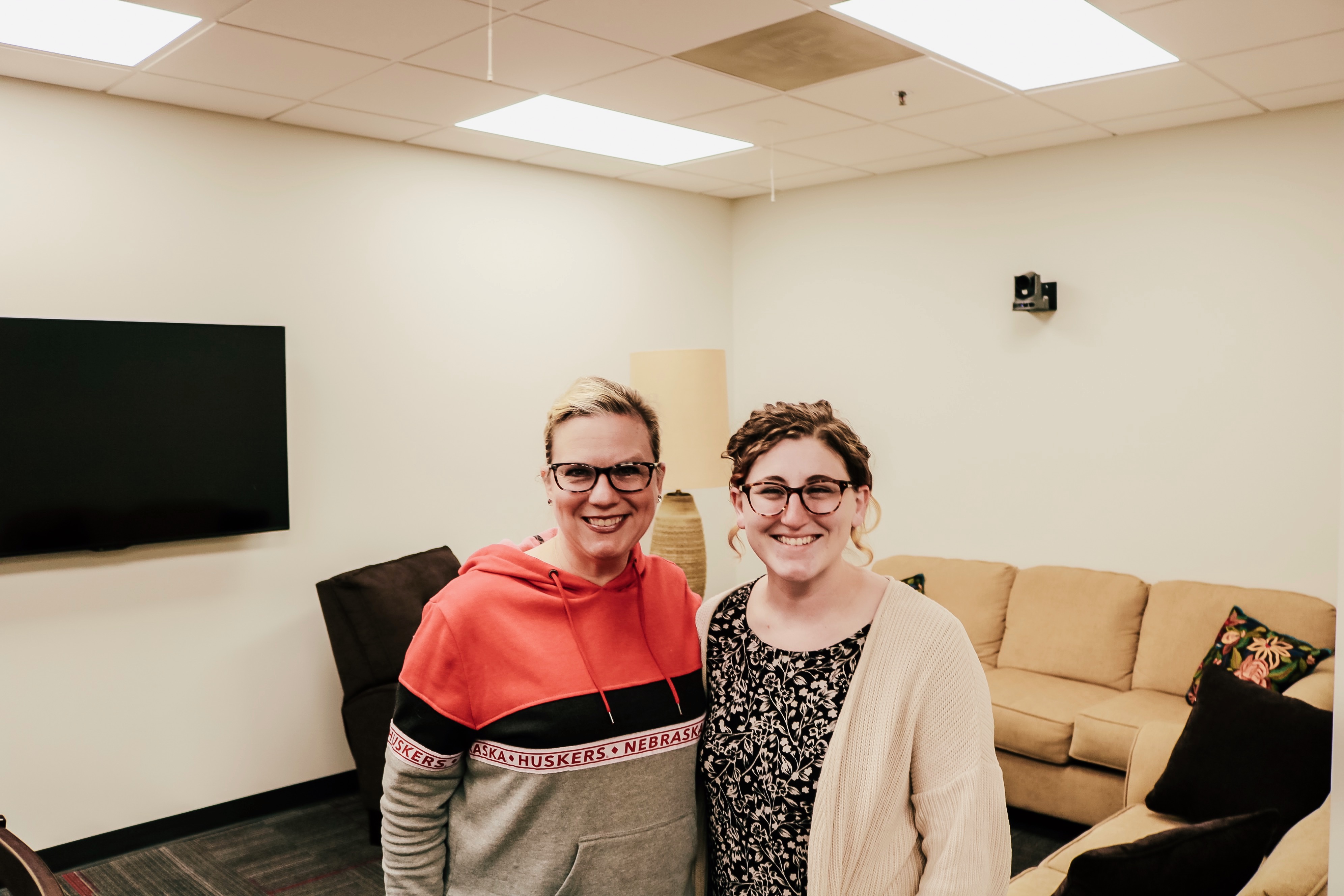
What is your role at UNL?
I am a professor in the Department of Communication Studies. The area I teach and conduct research in is Interpersonal Family and Health Communication. I am a teacher, researcher, and a community member in my department, at the University, and within the discipline. Most professors’ jobs are some combination of teaching, research, and service, and that is my job too.
What is Narrative Nebraska?
Narrative Nebraska is the name of my research lab. A collection of grad students, undergrad students, and myself work to research the link between the quality of communication and the quality of life. More specifically we are interested in understanding the content, processes, and outcomes of narratives and storytelling because they are such a prevalent form of communication in our everyday life. We tell stories all day long, we make sense of the world through stories, we create our identities through storytelling, we cope with loss, grief, trauma, and difficulties through telling stories, and we connect with others through story telling. Story telling is an extremely prevalent and very consequential phenomena in our lives, but it is so common that it is surprisingly understudied in Communication Studies. My research from the time I wrote my master’s thesis has been about storytelling.
What made you begin researching storytelling?
I got really interested in storytelling early on and how it connects with our health. My master’s thesis was about the link between the narrative of a breakup and the adjustments to the breakup to see if people who wrote more complete breakup stories were also more adjusted. After I finished that study, I thought to myself, “No one is really looking storytelling and how our families telling stories together and what the correlates of that are. How does that relate to family satisfaction and family functioning?” Over the course of my career we have developed research that has resulted in a theory called Communicated Narrative Sense-Making Theory which looks three elements of storytelling. We call these three elements heuristics. One element is retrospective storytelling, which is the stories that we hear and lasting impact that we have on our lives. Interactive storytelling is the interactional verbal and nonverbal processes by which we collaborate to make sense with our lives through storytelling. Finally, translational storytelling uses narrative series and empirical results to design interventions meant to improve the quality of life for our participants. As a lab, Narrative Nebraska does research on retrospective and interactional storytelling by creating and testing interventions under the umbrella of translational storytelling. Our ultimate goal is to use narrative messages, theories, and empirical findings in order to improve people's lives
What advice would you give to students that are hoping to join a research team?
Graduate students really come to graduate school knowing that they want to work on projects and who they want to work with. For undergraduates who are thinking of going to graduate school to do research or for a living, I would recommend talking to your current professors to get a sense of what you are interested in and what are the graduate programs that would be most suited for you.